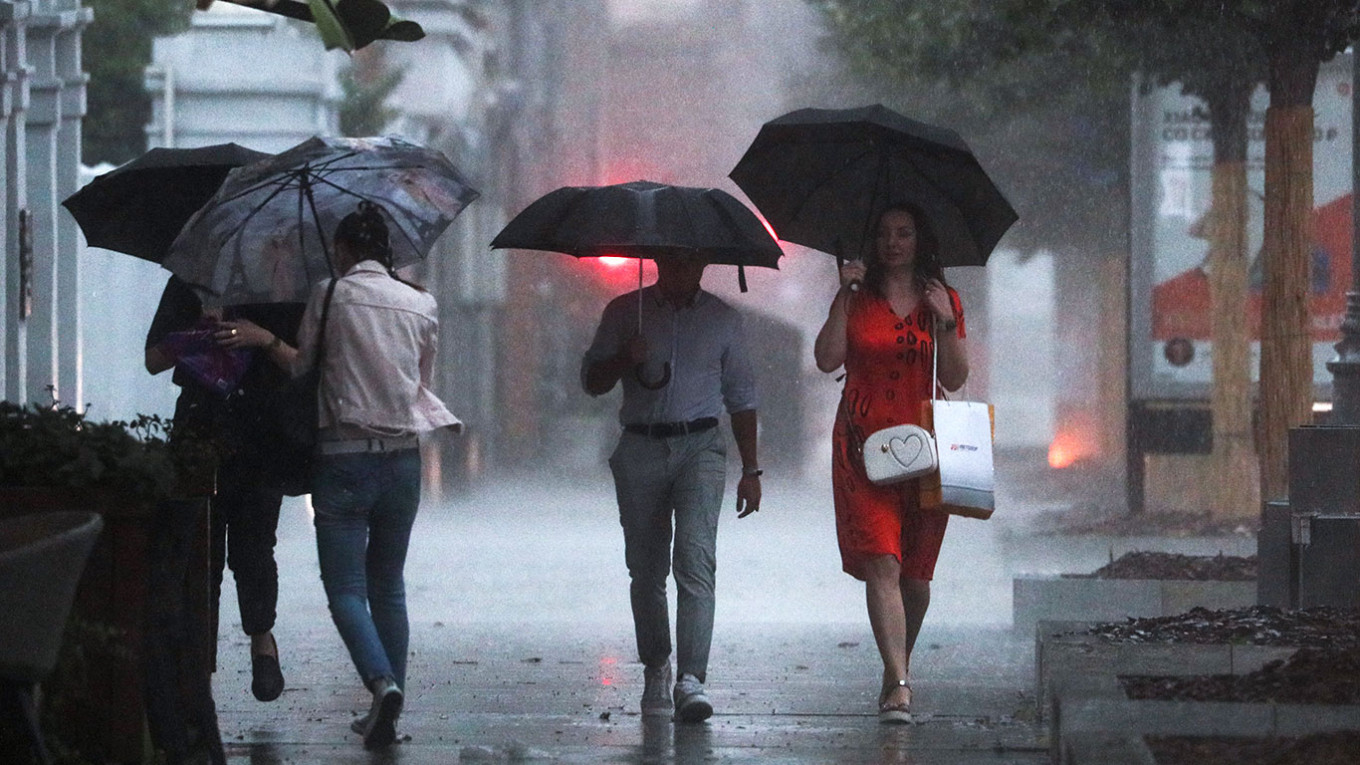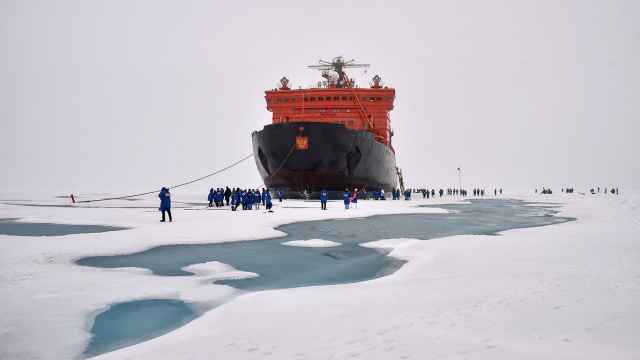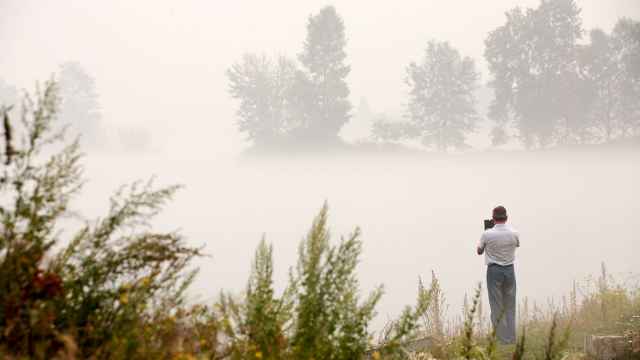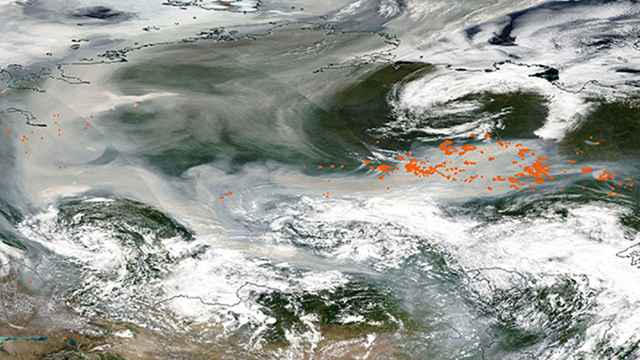Russia’s 2020 temperatures were a record 3.22 degrees Celsius above the historical average, according to a new draft report by Environment Ministry experts published on Tuesday.
The spike represents the first time temperatures have been over 3 C higher than the norm since measurements began in 1936. Last year’s anomaly beat the previous record seen in 2007 by more than 1 C, the report said.
Winter 2019-2020 was also the warmest winter since 1936 in all but two Russian regions, with nationwide temperatures 5 C higher than the 1961-1990 average.
Russia is a signatory to the 2015 Paris Agreement which seeks to keep global warming within 2 C above pre-industrial levels — a goal that UN climate experts warned is at risk of becoming impossible if urgent action isn’t taken to cut carbon emissions.
Nearly three-quarters — 72% — of Russia’s territory experienced an extreme weather event of some kind in 2020, according to the report.
In 2020, Russia’s Emergencies Ministry reported 104 weather emergencies nationwide, more than double the number recorded the previous year. The number of dangerous flooding events doubled, forest fires quadrupled and hurricanes and severe storms rose tenfold over 2019 levels.
“This trend remains true in 2021. The number and scale of dangerous natural events are rising and so is the damage inflicted by them,” Vasily Yablokov, head of Greenpeace Russia’s climate change division, told the Kommersant business daily. “And it will get worse with every year.”
The draft report must go through a series of public hearings before it can become official.
Its findings add to the urgency facing the world’s largest country — which is warming 2.5 times faster than the rest of the world — as its leadership wakes up to the realities of manmade climate change.
President Vladimir Putin vowed to allocate funding to protect the country’s forests after unprecedented fires tore across Siberia this summer, a disaster experts linked to climate change, negligence and an underfunded forest service.
Some 57% of Russians say they already feel the impact of the climate crisis on their daily lives, according to a poll last year by the state-run polling agency VTsIOM. However, 25% of Russians remain skeptical that climate change is linked to human activity.
A Message from The Moscow Times:
Dear readers,
We are facing unprecedented challenges. Russia's Prosecutor General's Office has designated The Moscow Times as an "undesirable" organization, criminalizing our work and putting our staff at risk of prosecution. This follows our earlier unjust labeling as a "foreign agent."
These actions are direct attempts to silence independent journalism in Russia. The authorities claim our work "discredits the decisions of the Russian leadership." We see things differently: we strive to provide accurate, unbiased reporting on Russia.
We, the journalists of The Moscow Times, refuse to be silenced. But to continue our work, we need your help.
Your support, no matter how small, makes a world of difference. If you can, please support us monthly starting from just $2. It's quick to set up, and every contribution makes a significant impact.
By supporting The Moscow Times, you're defending open, independent journalism in the face of repression. Thank you for standing with us.
Remind me later.






